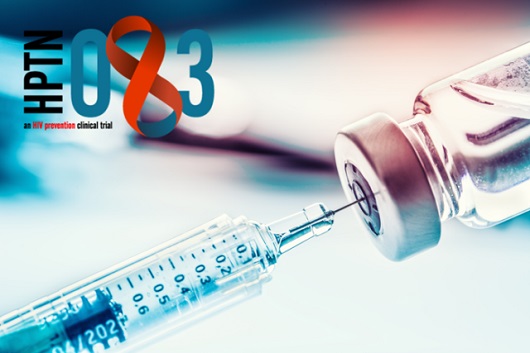Fiocruz coordinates a pioneer study in HIV pre-exposure prophylaxis
14/07/2020
Juana Portugal (INI/Fiocruz)
The international clinical trial HPTN 083 has proven that PrEP (HIV pre-exposure prophylaxis) containing CAB-LA (long-acting injectable Cabotegravir) used every eight weeks yielded efficacy superior to Truvada in the prevention of infection by the virus. “This is an unprecedented success for the field of HIV prevention. PrEP with CAB-LA is a new and powerful strategy that can really make a difference in controlling the HIV/Aids epidemic, emphasized Beatriz Grinsztejn, chief of the STDs and Aids Clinical Research Laboratory of the National Institute Infectious Diseases Evandro Chagas (INI/Fiocruz). Grinsztejn coordinated, on a global level, the clinical trial in partnership with Raphael Landovitz, associate professor of the Division of Infectious Diseases of David Geffen School of Medicine, at the University of California in Los Angeles (UCLA). The announcement was made last Wednesday (July 8), during the 23rd International Aids Conference (Aids 2020).

Study compared efficacy and safety in 4,570 HIV-negative PrEP volunteers containing CAB-LA with PrEP with Truvada.
The study was carried out by the HIV Prevention Trials Network (HPTN) and financed by the National Institute of Allergy and Infectious Diseases/National Institutes of Health (NIAID/NIH) of the United States. The HIV/Aids Clinical Trials Unit led by researcher Beatriz Grinsztejn has been a part of the HPTN since 1999.
HPTN 083
HPTN 083 was the first large-scale clinical trial containing a long-acting injectable drug to prevent HIV infection. The trial compared the efficacy and safety in 4,570 HIV-negative PrEP volunteers containing CAB-LA and PrEP with Truvada. The subjects of the research were gay men, other men who have sex with men, transvestite and trans women who have sex with men, in 43 research centers in seven countries (South Africa, Argentina, Brazil, United States, Peru, Thailand, and Vietnam). Inclusion began in November 2016. Two thirds of the group of participants are under 30 years old, and 12% are trans women and transvestites. The clinical coordination of the trial at the STD and Aids Clinical Trial Laboratory of INI/Fiocruz was made by Lara Esteves Coelho, researcher of the unit, which is the research center with the highest number of participants (240) from among all other centers in the world.
The participants, all considered at increased risk of acquiring HIV, were randomly assigned to receive PrEP either containing long-acting injectable Cabotegravir (CAB-LA) every eight weeks or Truvada daily. According to the design of the clinical trial, each volunteer would be given Cabotegravir or Truvada for three years in the blind phase of the study (when neither the participants nor the researchers know which drug the patients are taking).
In the first of the three intermediary analysis in the protocol, the Data Monitoring and Safety Committee verified that the data showed PrEP containing long-acting Cabotegravir (CAB-LA) yielded superior results. Among those using Cabotegravir, the acquisition rate of HIV infection was 66% lower than among those using Truvada daily. From the total of 52 people who were infected by HIV during the study, 39 were allocated in the Truvada arm of the study, while only 13 were in the Cabotegravir arm.
“HPTN 083 was the first PrEP trial designed with a focus on the more vulnerable populations among the vulnerable, which had been little represented in previous PrEP trials: young people, black people, transvestites, and trans women. The results will help diminish disparities in access to PrEP benefits”, stated Grinsztejn. The trial was presented by Beatriz Grinsztejn during the 23rd International Aids Conference (Aids 2020), on 9 July.
HPTN
The HIV Prevention Trials Network (HPTN) is a global network of collaborative clinical trials that brings together researchers, ethics specialists, members of the community, and other partners, to develop and test the safety and efficacy of interventions projected to prevent HIV acquisition and transmission. The HPTN collaborates with more than 85 research venues for clinical research in 19 countries, to evaluate new interventions and HIV prevention strategies in populations considered more vulnerable to infection. The HPTN research agenda - more than 50 ongoing or concluded trials with more than 161 thousand participants enrolled and validated - focuses mainly on the use of integrated strategies: use of anti-retroviral drugs (anti-retroviral therapy and pre-exposure prophylaxis); interventions for substance abuse, especially injectable drugs; behavioral interventions to reduce risk; and structural interventions.


